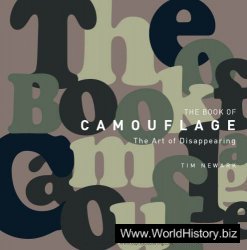In the twilight of antiquity the fourth-century ce Roman historian Ammianus stated that he wrote his work as a former soldier and in the Greek fashion - ut miles quondam et Graecus (31.16.9). With this sphragis the author set himself consciously in the tradition of Greek predecessors like Thucydides and Polybius, who appealed to their own observation and interrogation of eyewitnesses as conferring authority on their accounts of contemporary history. Applying a similar method for narrating the events of his own lifetime, Ammianus had written: ‘‘Using every effort to investigate the truth, I have set out, in the order of their occurrence, events which my age allowed me to see myself or to know by thorough questioning of those who took part in them’’ (15.1.1; cf. Barnes 1998: 66; Matthews 1989: 454-464). The passage is a strikingly ‘‘classic’’ formulation of the method of personal inquiry in history: it envisages veritas as the result of a process of research and evaluation (scrutari) through autopsy or the careful interrogation of participants in the events. Ammianus’ affinity with this research tradition is likewise displayed in his geographical and ethnographical accounts and in other digressions on a wide variety of topics, in which he claims, in true Herodotean fashion, autopsy of the phenomena described (e. g., 14.4.6; 17.4.6; 22.8.1; 23.6.36). What it means for Ammianus to belong to the Greek tradition is intimated in one of these excursions. Introducing the Augustan historian Timagenes as an authority on the ethnography of Gaul, he identifies him as ‘‘a Greek, in diligence and in language’’ (15.9.2). The order of the words et diligentia Graecus et lingua is significant: ‘‘it is his expertise in research that stamps Timagenes as a Greek even more than the language in which he wrote’’ (Barnes 1998: 66).
At the time of Ammianus’ writing, some 900 years had passed since the intellectual revolution of Ionian historie had given rise to the tradition of inquiry he seems to refer to in particular. Actually, with its literary pedigree in the epic poets’ appeal to the Muse, the truth-claim based on ‘‘autopsy’’ was a few centuries older still. The poets call on the Muses as goddesses ‘‘who are present and know all things’’; mortals, by contrast, ‘‘have heard only the rumor of it, and know nothing’’ (Hom. II. 2.484-493; cf. Accame 1964). In the Odyssey (8.487-491) Demodocus is praised for narrating the sufferings and toils of the Achaeans with a degree of clarity ‘‘as if you were present yourself, or heard it from one who was.’’ While his narrative is still Muse-inspired, the qualification ‘‘as if’’ is a remarkable anticipation of the ‘‘emancipated’’ method of the later historians (Hartog 1998: 131-133). More telling examples from the Odyssey could be cited which privilege the information obtained from seeing over and against hearsay (see Marincola 1997: 63-64). But ‘‘history’’ came into existence as a self-conscious break with epic literature as soon as an author - assuming the persona of ‘‘inquirer’’ - took responsibility himself for giving an account of human affairs in the past. Herodotus’ preface is, as far as we can tell, the first instance of the use of historie in this sense of the word.
The word historia (historie in Herodotus’ Ionian dialect) derives from the Greek transitive verb historein, which primarily means ‘‘to learn by inquiry,’’ i. e., active learning. Much has been written on the origin of the Greek historians’ spirit of inquiry in Ionian culture. Herodotus’ background and education leave no doubt that he was in many different ways influenced by the outburst of intellectual activity in the cities of Asia Minor, from Thales onwards. But given the many connotations attached to the concept of historiee - starting from epic tradition, through its use by the pre-Socratics, where it includes critical investigation of all ‘‘nature’’ (physis), to the teachings of contemporary medical schools (Lateiner 1986; cf. Thomas 2000) - there is a growing awareness that it may be counterproductive to try to identify the author of the Histories as an adherent of any particular school of thought. Herodotus’ various research practices make it a priori unlikely (pace Sauge 1992) that the word put on prominent display in the opening line of his work would not (or not yet) have the broad, generic meaning of ‘‘research’’ or ‘‘inquiry.’’ Attempts to connect his historie with a particular field of investigation (either geographical, ethnographical, or historical: Drews 1973) or to scale down its polyphonic largess (Lateiner 1989: 56) to one privileged central meaning - be it seeing, questioning, judging, or hearing - fail to convince. All these modes of inquiry are involved in Herodotus’ active quest for data (see Hdt. 2.99.1; cf. Mtiller 1926; Bakker 2002: 15-19, with reservations with regard to ‘‘seeing’’). With its various layers of meaning, historie functions in Herodotus’ work as a mot carrefour, indicating an intellectual activity rather than a particular field in which it would operate (Hartog 2001a: 27-28; Lachenaud 2004: 12-19). It is appropriate, then, to stress the open character of the notion and the rich potential for further development that seems to be inherent in Herodotus’ understanding of the concept of historie:. At a time when ‘‘history’’ writing is beginning to find its feet in the intellectual ferment of fifth-century Ionia and Athens, this sounds very promising, even when we have to acknowledge that Herodotus’ work, which was deemed a historical account only in retrospect, may predate any formal awareness of ‘‘history’’ as a genre (cf. Boedeker 2000).
But to quote Momigliano (1990: 59), ‘‘Thucydides saw to it that Herodotus should not prevail.’’ Indeed, the former’s impressive account of the Peloponnesian War, written entirely on the basis of visual evidence, is widely regarded by scholars as the perfect, emblematic realization of the Greek idea of historical inquiry. Jacoby (1926: 95) felt that historiography reached its telos in Thucydides. Today this view, although stripped of its problematic evolutionary and teleological presuppositions, is still very much alive: it runs like a guiding thread through a recent collection ofessays (Hartog 2005). The root meaning of historic (*wid-, *weid-, *woid-, ‘‘see’’ or ‘‘know’’ for having seen) would seem to have crystallized in the work of Thucydides. And the influence exerted by him on all subsequent Greek historians would have been the decisive factor in narrowing down the idea of ‘‘proper’’ history writing to a narrative of events more or less contemporary with the writer (Zeitgeschichte, in Jacoby’s definition). Such, at least, is the main thrust of Momigliano’s seminal articles (1990: 29-79) where he explains how in consequence of the ‘‘fact’’ that Thucydides was ‘‘chosen as model historian,’’ history became a narration of political and military events, with preference given to the events which the writer had witnessed. ‘‘All the classic historians,’’ argues Momigliano, ‘‘conformed to this pattern,’’ pointing out that Polybius accepted ‘‘all the fundamentals of Thucydides’ method’’ (Momigliano 1990: 59, 47). In this view there is one distinct line of thought from the invocation of the ‘‘omnivision’’ and ‘‘omniscience’’ of the Muses through Thucydides and the entire tradition of ancient and western historiography up to Gibbon: ‘‘the history of western historiography can be written in counterpoint of a history of the eye and of vision’’ (Hartog 2005: 33).
One of the problems we will address in this chapter is the issue of the value and representativeness of Polybius’ views. In close connection with this, we will also have to see whether or not the evidence that can still be gleaned from the fragmentary remains of post-Thucydidean historiography tends to support the static and monolithic view of its (non-)development that has been outlined above. In addition to the fundamental ideological and methodological critical observations Humphreys (1997) has made about the failure of modern scholars to devote appropriate attention to the proper dynamics of post-Thucydidean Greek historiography, we may ask the following simple question: Should not the very fact that Thucydides avoided - deliberately, it would seem - using the word historic in itself be enough to inspire second thoughts? (Cf. Shrimpton 2003, although I do agree with all of his observations.)
Etymological speculation that would restrict historia to contemporary history written on the basis of eyewitness accounts appears only late in antiquity, notably in Servius’ tentative but problematic definition opposing historia and annales (Dietz 1995: 84-95; equally misleading is Isidore’s definition of historia, Orig. 1.41.1-2). Herodotus, for one, is not afraid of using the phrase akoe historeon (2.29.1). Equally controversial is the possible linguistic support (Floyd 1990) for the otherwise interesting view that would model Herodotus’ intellectual activity as a historian on the task of the histor or istor. According to the evidence of the Homeric poems, archaic poetry, and inscriptions, the histor acts as ‘‘arbitrator,’’ weighing up the conflicting claims of contending parties (cf. Connor 1993). To pass judgment is, definitely, an important aspect of most Greek historians’ conception of their task. But to argue with Darbo-Peschanski that Herodotus, Thucydides, and Polybius made it their prime business to ‘‘judge the past’’ and act as ‘‘adjudicators’’ rather than try to investigate and accurately report events, problematizes the truth-claims of these historians to an extent that is hardly reconcilable with their emphatically professed aims (Darbo-Peschanski 1998, 2003; above, p. 35; on Herodotus anchoring his work in the ‘‘realm of opinion,’’ see Darbo-Peschanski 1987: 164-188). The fact that they ‘‘judge’’ need not preclude their trying to report events and their causes as accurately as they can. Herodotus’ most famous judgment - the Salamis statement of 7.139 - draws its particular strength from his conviction, and actual demonstration, that his opinion (gnOmO) conforms to true fact. In this sense he has transcended the model of the histor that he ultimately found confining (cf. Connor 1993: 15). In Polybius’ view (1.14), a reader can derive profit only from a truthful account. The aim of the historian, he says, is to ‘‘record the truth... and to instruct and persuade serious students by means of the truth of the words and the actions’’ (2.56.11-12; cf. 38.4.8).




 World History
World History









